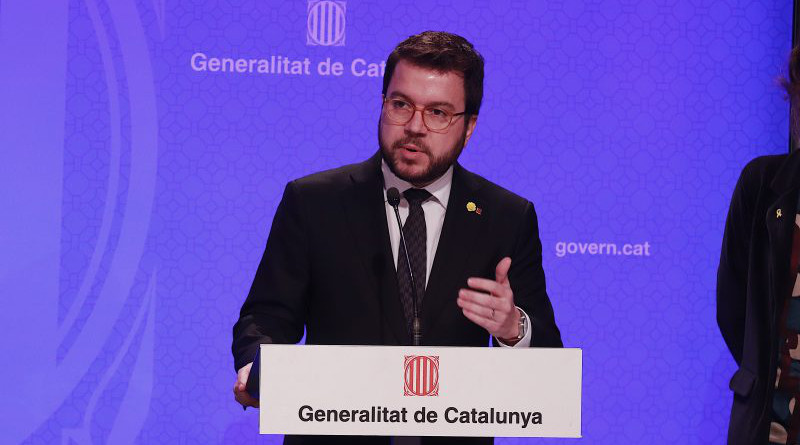A Basic Confinement Income For European Citizens, Now Is The Time – OpEd
By EurActiv
By Pere Aragonès*
(EurActiv) — We need a clear and drastic measure that can secure a monthly wage until European economies can return to work, produce and consume.
It is as if we had turned off the switch. The coronavirus crisis is an external shock to the world economy of an unprecedented magnitude and intensity, with consequences that are not foreseeable. It surely implies a significant supply shock, as the productive activity has come to a halt with many goods and services not being produced or distributed. At the same time, it is also a demand shock, as the confinement and the fall in income of workers, self-employed and companies is causing a steep fall in consumption and investment. It has not yet materialized as a financial crisis but it could end up triggering one. There is no precedent in contemporary economic history. Only a war, with the fall and reallocation of production, distribution and consumption, is comparable. It is as if in the middle of regular economic activity, someone had turned off the lights.
What we have done so far is not enough. In the current situation of emergency, public budgets must be focused in three crucial fronts: first, to provide all necessary resources to respond to the health emergency (medical supplies, drugs, research and a strong pool of health workers); secondly, to support the economic sectors that are affected – practically all – by the fall in activity. The response has to cover benefits for temporary unemployment, credits and public guarantees for companies, as well as to ensure sufficient public spending in order to guarantee enough income for employees and self-employed. Lastly, we have to secure essential services for private life and society. All public administrations have announced measures in this regard, with different levels of intensity and success, and at different rates. These messures are all welcome.
However, it will not be enough. It is time for a basic confinement income. We need to ensure that there is oxygen in the room until the switch is turned on again. A basic income for all citizens that have lost their regular incomes, funded directly by the European Central Bank, is needed. In monetary policy jargon, “whatever it takes”, now means this: a monthly salary until we are able to return to produce, work and consume. We are not facing a crisis between creditors and debtors, but a global pandemic that will encompass all humanity and break the rules of economics, society and politics. Therefore, a clear and drastic measure is needed to secure an income for all citizens that covers essential expenses.
Today, not guaranteeing a living income for everyone is not an alternative. The idea of a universal basic income in situations of economic normality had always generated warnings about the effects on inflation, the labor market or possible disincentives it could generate. I have always been skeptical in this regard. However, we are living in a time of extreme abnormality and the option of not guaranteeing income for the population (who will not be able to work or look for a job) can lead us to a social and economic crisis far worse than the one initiated in 2008.
A direct, non refundable money transfer from the European central bank to citizens, restricted to the duration of the emergency, would not generate public debt and would ensure that the necessary economic and social reconstruction policies can be activated. In a situation of exogenous demand and supply shocks to the economy, the effects on inflation and the moral risk of debt crises are now of a secondary nature and can be dealt with after the crisis is overcome.
In exceptional times, exceptional measures. And there is nothing more exceptional than a health crisis affecting the whole of humanity. European policymakers need to realise that a humanitarian and economic emergency is upon us, provoked by the coronavirus, and that this emergency requires exceptional measures in the form of money-financed fiscal interventions. The most afflicted countries, on its own, will be incapable of acting using large-scale conventional bond financed deficit spending.
It is time for the EU to show to its citizens that the cession of monetary sovereignty that the Eurosystem implies can not only be used to safeguard the financial system, as it did some years ago, but also to protect them from the extraordinary situation that we are living. From an unyielding Europeanist position, I am convinced that if not dealt properly there is a real risk the current crisis will weaken the European project, precisely when our citizens need it most.
European policies need to change radically in order to protect its citizens and to help create the conditions for a widespread economic recovery when this crisis ends. It is time for a basic income to ensure European citizens will be able to return to relatively normal life conditions when the emergency is overcome. A basic income is needed to save the future of the economy, to save coexistence in Europe and to ensure a minimum welfare for all.
European governments cannot repeat the mistakes made in the 2008 financial crisis. Now is the time to act.
*Pere Aragonès is the Vice president and economy minister of the Government of Catalonia

